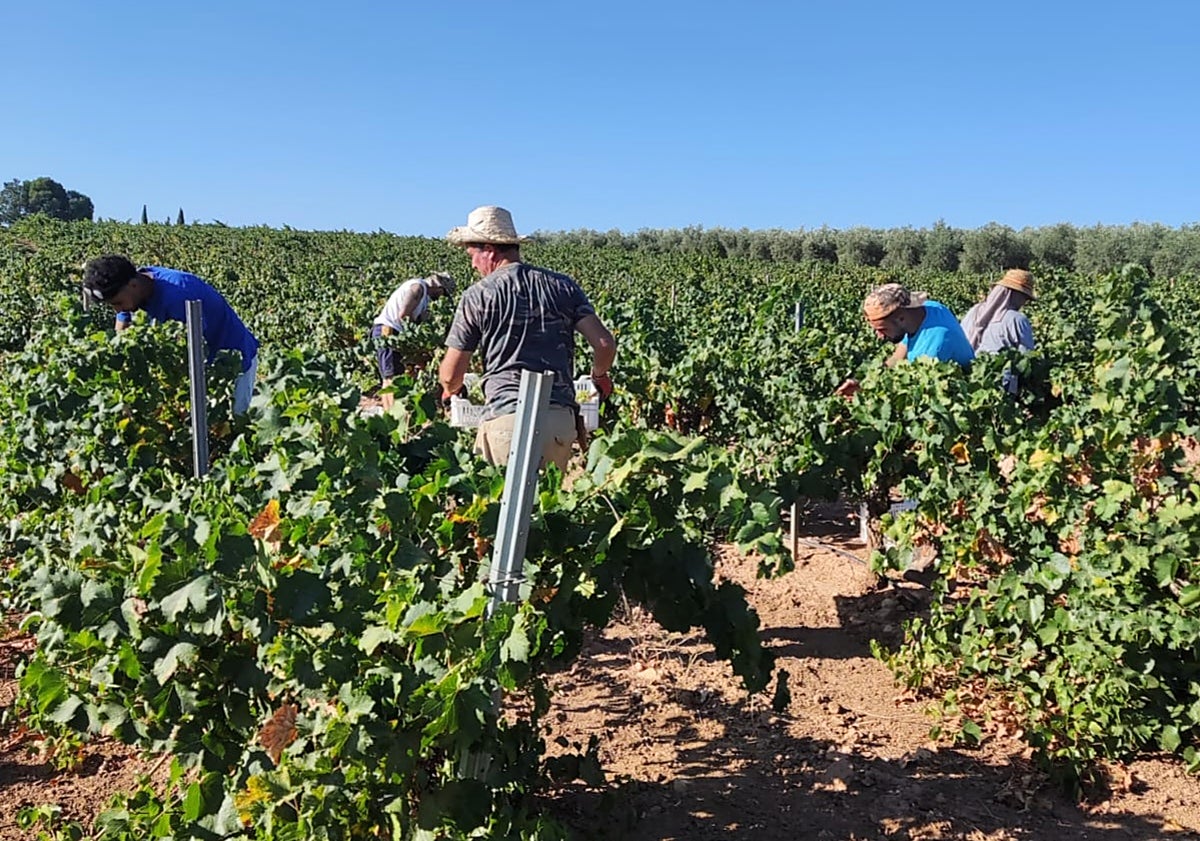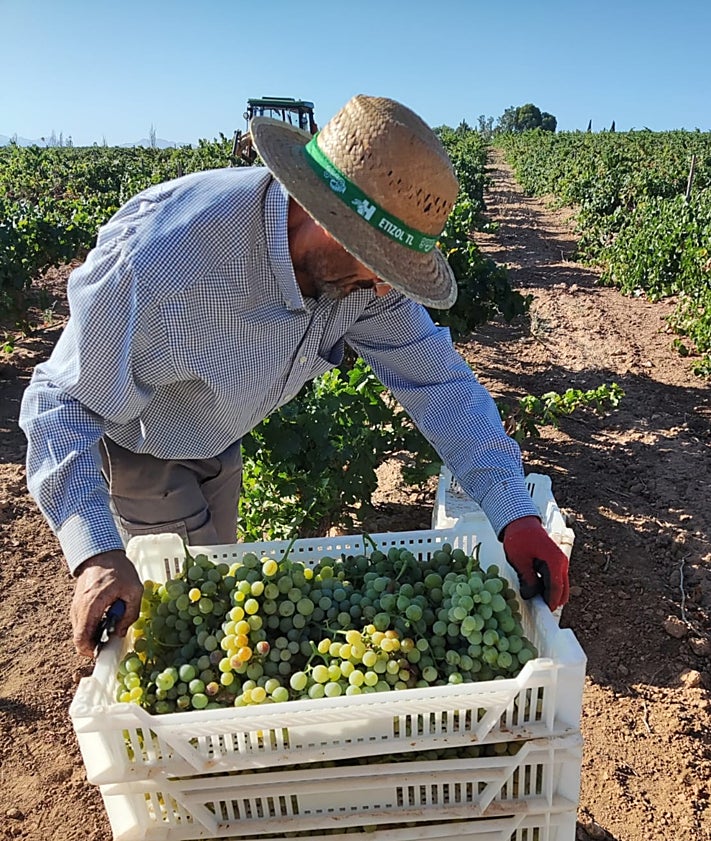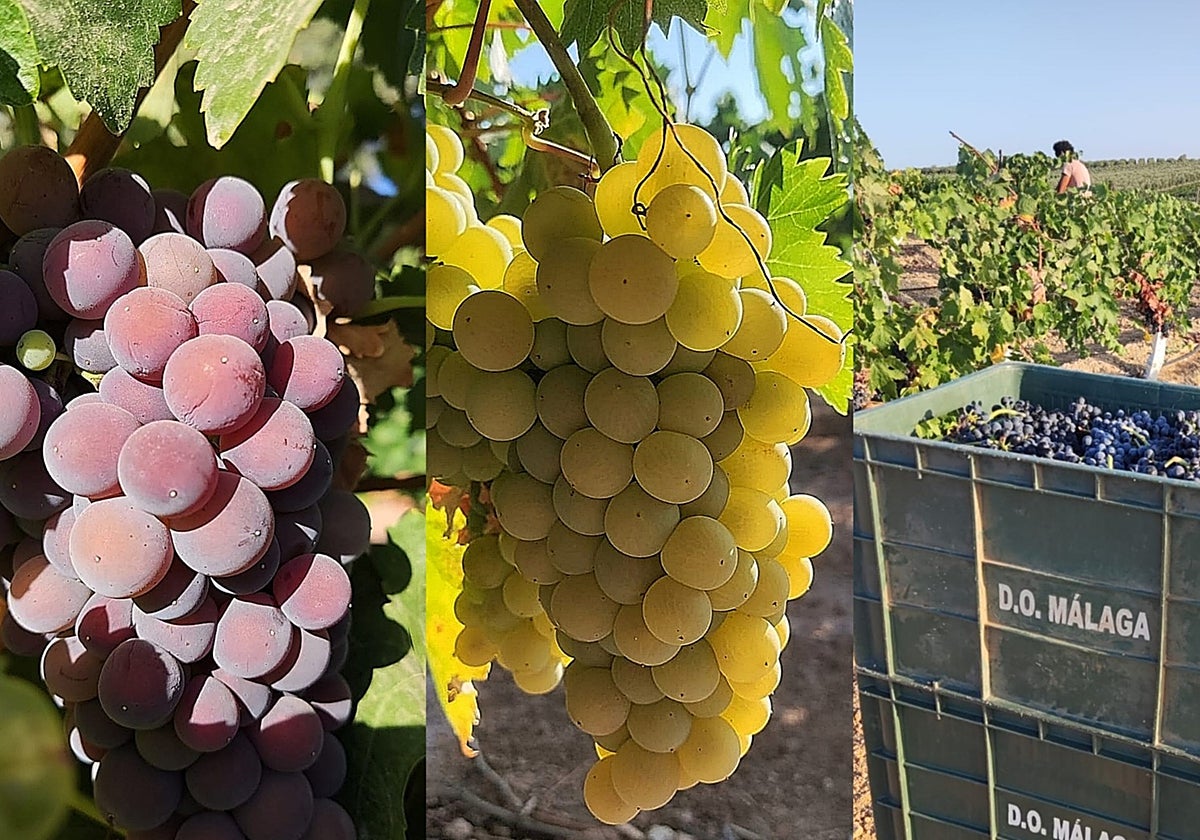Doradilla and Romé: little-known grape varieties local to Malaga
Bodegas in the north of Malaga province boast a limited production of wines made with varieties that are unique in this area
Alekk M. Saanders
Friday, 13 September 2024, 13:42
September is the month of festivals celebrating the beginning or end of the grape harvest. Most of the events are dedicated to the famous grape varieties, Muscatel and Pedro Ximénez. However, the native (DOP Malaga and Sierras de Malaga) varieties of Malaga - white Doradilla and red Romé - can only be tasted in a few bodegas in the north of the province. One of these is La Capuchina near Mollina.
With a golden hue
Today, after almost 3,000 years since the Phoenicians started wine-growing in the area, there are 3,800 hectares of vineyards in Malaga, dominated by Muscatel and Pedro Ximénez, which are used to produce sweet wines and raisins. Few people have heard of Doradilla, but this grape variety, along with Romé, is the original Malaga grape.
Few people have heard of Doradilla but this grape variety, along with Romé, is the original Malaga grape
The name Doradilla reflects the colour of the grape, which in the sunlight really acquires a golden hue. Doradilla is often confused with Doradillo, which is a different grape variety, very popular in Australia.
The plant is resistant, germinates early, and the shoots, when they emerge, grow vigorously. Doradilla does not have an excessive flavour, but it is subtle, showing up in an elegant manner, giving very pleasant saline touches.
Two grapes in one place
The production of Doradilla is very limited. Over the years, the area devoted to this variety has been greatly reduced and it can only be found in the northern region of Malaga. It is reported that there are only five hectares where it is grown in the world and all of them are in Antequera, Fuente de Piedra, Almargen and especially in Mollina (there are also some in Moclinejo in the Axarquía).
One of those hectares is located in the estate of El Cortijo La Capuchina. The building, with more than 200 years of history, is surrounded by a Mediterranean landscape at the foot of the Sierra de La Camorra. The owners describe it as a unique place where nature, history and culture come together. It is also unique in that it is where the authentic Malaga grape varieties are cultivated.



"The 20 hectares of vineyards produce grape varieties typical of Malaga, the wines from which have been recognised ambassadors of the land around the world for centuries. In 2005 we started growing Doradilla, and this year we harvested our first Romé. We are proud of this because we position La Capuchina as a company that is faithful to history, tradition and modernity. So growing Doradilla and Romé is our tribute to the traditions of this land," Mercedes Segura, in charge of the bodega, told SUR in English.
'We have just finished picking all of the Doradilla and we are more than pleased with the quality and volume of grapes made possible by this year's weather conditions'
Mercedes Segura
September is the busiest time in the 'cortijo'. Mercedes Segura, along with other workers, has been fully involved in the vendemia that began last month.
"Doradilla is one of the first grapes we harvest in August. We have just finished picking all of the Doradilla and we are more than pleased with the quality and volume of grapes made possible by this year's weather conditions. Now it's time for the wine production. We have two wines that include Doradilla. One of them is Capuchina Vieja Doradilla. It is a young dry white wine. Moreover, Doradilla is involved with Petit Verdot in the production of a rosé wine called Capuchina Vieja Kium," Mercedes said.’
Especially recently, there has been a growing interest in making wines from other less productive and local grape varieties
Especially recently, there has been a growing interest in making wines from other less productive and local grape varieties, which adds value. For example, the dry white wine made from Doradilla is becoming increasingly popular among locals and is often ordered by foreign guests.
Each year La Capuchina produces around 1,500 bottles of Doradilla wine, all of which are sold to local restaurants, mainly in Malaga. Doradilla wines can be purchased via internet and directly at the bodega, which also organises wine tours by appointment in Spanish and English.
